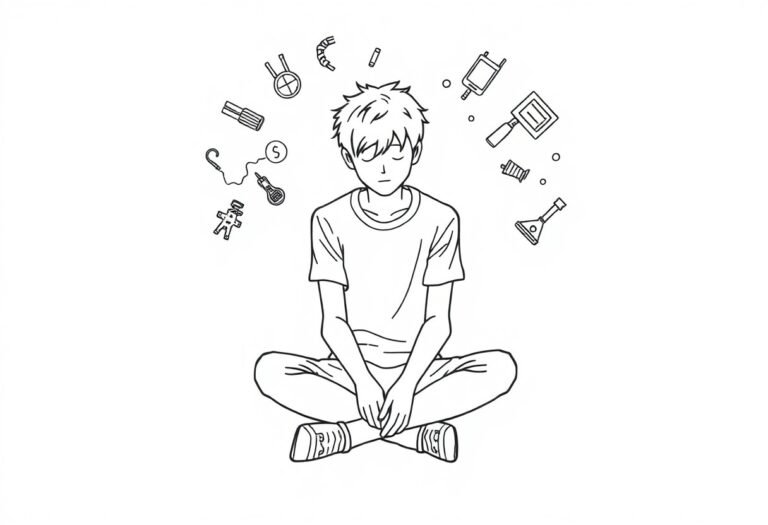Are Emotional Outbursts And Moodiness Normal In Teen Development Or A Sign Of Concern?
Many parents often find themselves puzzled by their teen’s emotional outbursts and fluctuating moods. It’s important for you to understand that these reactions can be a normal part of development, influenced by various factors such as hormonal changes and social pressures. The question, are emotional outbursts normal in teen development?, is one that many parents grapple with. However, there are instances when these behaviours may signal underlying issues that require attention. By discerning between typical adolescent behaviour and signs of potential concern, you can better support your teen during this pivotal stage of their life.

Key Takeaways:
- Emotional outbursts and mood swings are common during adolescence due to hormonal changes and brain development.
- Teenagers often navigate complex social dynamics, which can intensify their emotional responses.
- While moodiness can be a normal part of development, persistent or severe changes in behaviour may indicate underlying issues, such as anxiety or depression.
- Open communication and support from parents and caregivers are vital in helping teens manage their emotions.
- Seeking professional help can be beneficial if emotional outbursts interfere with daily life or relationships.
Understanding Teen Emotional Development
A comprehensive understanding of teen emotional development is crucial for recognising the complexities your adolescent faces during this critical period of growth. During these years, you may notice significant fluctuations in mood and expression, which can stem from various influences, including hormonal changes and cognitive development. It’s important to approach these shifts with empathy, as they represent your teen’s process of forming their identity and navigating interpersonal relationships.
The Impact of Hormonal Changes
Along with physical growth, hormonal changes significantly influence emotional responses in teenagers. As your teen’s body undergoes puberty, fluctuations in hormones like estrogen and testosterone can lead to heightened sensitivity and erratic mood swings. It’s crucial for you to recognise that these emotional outbursts are a normal part of development, but they can also indicate when your teen might require additional support, guidance, and understanding.
Cognitive Development and Emotional Regulation
By understanding cognitive development in teenagers, you can better grasp how it impacts their emotional regulation. During adolescence, your teen’s brain undergoes significant changes, refining their ability to process emotions and make decisions. However, this developing capacity means they may struggle with managing intense feelings or responding appropriately to situations, leading to impulsive behaviour or emotional outbursts.
Are Emotional Outbursts Normal In Teen Development?
Considering the link between your teen’s cognitive development and emotional regulation, it’s vital to foster an environment where they can express themselves safely. Encourage open communication to help them articulate their feelings, which can strengthen their emotional intelligence. Additionally, supporting coping strategies, such as mindfulness or journaling, can empower your teen to manage their emotions more effectively. By providing a consistent foundation, you can help them navigate the complexities of their feelings while developing crucial life skills for emotional resilience.
Common Emotional Outbursts in Teens
Some of the most frequent emotional outbursts seen in teens include anger, frustration, and sadness. These episodes can often seem overwhelming, marked by intense reactions to seemingly minor provocations. Understanding that these outbursts are linked to the natural developmental phase of adolescence can help parents and caregivers navigate this challenging stage.
Identifying Typical Mood Swings
Below are some typical mood swings you might notice in your teen, such as sudden shifts from joy to despair or irritability to sociability. Such transitions can occur due to hormonal changes, peer pressure, or academic stress, often leading to perplexing behaviour. Recognising these patterns can assist you in providing support when it’s needed most.
Triggers of Emotional Reactions
Besides hormonal changes, there are various external and internal triggers that can provoke emotional reactions in your teen. Common factors include social interactions, academic pressures, and changes in family dynamics. Being aware of these triggers can help you intervene more effectively when your teen is overwhelmed.
This understanding of triggers can be pivotal in managing your teen’s emotions. For instance, a disappointing test result can result in a wave of sadness, while conflict with friends may ignite feelings of anger or rejection. By identifying these common stressors, you can create a nurturing environment where you not only help your teen develop coping mechanisms but also acknowledge their feelings as valid. Open communication about these triggers is vital for fostering emotional resilience.
When Moodiness Becomes Concerning
All teenagers experience mood swings, but when these fluctuations disrupt daily life or affect relationships, they may signal deeper issues. Pay attention to patterns: if your teen’s emotional outbursts are intense, frequent, or lead to withdrawal from social activities, it could be a sign to seek professional help.
Signs of Potential Mental Health Issues
Across various studies, common warning signs of mental health issues include persistent sadness, extreme irritability, changes in sleep or appetite, and difficulty concentrating. If your teen exhibits these symptoms consistently over several weeks, it may be time to consult a mental health professional.
The Role of External Stressors
A significant factor in teenage moodiness stems from external stressors such as academic pressures, social dynamics, and family changes. When your teen is exposed to excessive stress, it can exacerbate emotional instability. It’s vital to identify these triggers while promoting a healthy support system, open communication, and self-care practices to help your teen manage these stressors effectively.
Strategies for Supporting Teens
Your approach to supporting your teen during emotional outbursts and mood fluctuations can make a significant difference in their development. It is necessary to foster a nurturing environment where they feel validated and understood. Implementing effective strategies can help them navigate this challenging phase while promoting healthier emotional expression and resilience.
Communication Techniques
At the core of supporting your teen is effective communication. Actively listen without interrupting, and ensure they feel heard. Ask open-ended questions to encourage them to share their feelings and thoughts without fear of judgment. It’s important to validate their emotions, letting them know it’s okay to feel what they feel. This fosters trust and encourages them to communicate openly with you.
Encouraging Healthy Coping Mechanisms
By introducing healthy coping mechanisms, you can equip your teen with tools to manage their emotions more effectively. Support activities such as physical exercise, creative outlets, or mindfulness practices that promote emotional regulation. Encourage them to explore these options to find what resonates best with them.
To ensure your teen develops strong coping skills, guide them towards engaging in regular physical activities, which can boost their mood and reduce stress. Provide opportunities for them to explore creative outlets like art, music, or writing, enabling them to express their feelings constructively. Additionally, practice mindfulness techniques together, such as deep breathing or meditation, to help them ground themselves during overwhelming moments. These positive strategies not only enhance emotional resilience but can also prevent negative coping habits from forming.
The Importance of Professional Guidance
Once again, it’s vital to emphasise that as your teen navigates this turbulent phase of development, seeking professional guidance can provide clarity and direction. Mental health professionals, such as psychologists and counsellors, have the expertise to differentiate between normal mood changes and signs of underlying issues. This support can help you understand the emotional landscape of your teen and develop effective coping strategies, ensuring they transition smoothly into adulthood.
When to Seek Help
At times, you may notice that emotional outbursts and moodiness seem excessive or disruptive in your teen’s daily life. If you observe persistent feelings of sadness, withdrawal from friends and family, or changes in academic performance, it’s wise to consider consulting a mental health professional. Early intervention can make a significant impact on your teen’s growth and emotional well-being.
Types of Support Available
After identifying the need for support, there are various options available to you and your teen. These include:
- Counselling services tailored to address emotional challenges.
- Group therapy for sharing experiences with peers.
- Family therapy is used to foster understanding among family members.
- Support groups for parents facing similar challenges.
- Educational workshops focusing on adolescent mental health.
Recognising the right support type can empower your teen and guide you both toward healthier emotional management.
| Type of Support | Description |
|---|---|
| Counseling | Personalized sessions with trained professionals. |
| Group Therapy | Peer support for shared experiences. |
| Family Therapy | Improves family dynamics and communication. |
| Support Groups | Fosters a community for shared parenting challenges. |
| Workshops | Educational sessions for understanding adolescent issues. |
Professional support can make a significant difference in your teen’s emotional journey. Engaging with professionals allows you to access expert advice and structured resources tailored to your teen’s specific needs. By doing so, you can foster a nurturing environment where your teen feels safe addressing their emotions. Realising this importance in getting support ensures that your teen develops healthy emotional regulation and resilience.
- Expert advice to navigate emotional challenges.
- Structured resources for effective coping strategies.
- Nurturing environments encourage open communication.
- Healthy emotional regulation builds resilience.
- Recognising the value of these supports empowers both you and your teen for a more positive future.
To wrap up
Considering all points, it’s clear that emotional outbursts and moodiness can be a normal part of teen development as they navigate complex changes. However, remaining aware of the frequency and intensity of these behaviors is important. If you notice persistent mood swings or emotional issues that impact your teen’s daily life, it may be time to seek guidance from a professional. Understanding your adolescent’s emotional landscape will help you provide the support they need during this pivotal stage of growth.
FAQ
Q: What causes emotional outbursts in teenagers?
A: Emotional outbursts in teenagers can be attributed to a variety of factors, including hormonal changes, stress from school or social situations, and the development of their identity. As adolescents navigate new experiences and relationships, they may express their feelings more intensely. Additionally, brain development during this stage can impact emotional regulation, leading to more frequent outbursts.
Q: When should parents be concerned about their teen’s moodiness?
A: While moodiness is a common aspect of teenage development, parents should be attentive to significant changes in their teen’s behaviour. If the moodiness is accompanied by withdrawal from friends and family, drastic changes in academic performance, or expressions of hopelessness, it may indicate a more serious issue, such as depression or anxiety. Seeking professional help can provide clarity in these situations.
Q: How can parents support their teens during emotional outbursts?
A: Supporting a teenager during emotional outbursts involves active listening and providing a safe space for them to express their feelings. Parents can validate their teens’ emotions by acknowledging how they feel, rather than dismissing or minimising their experiences. Encouraging open communication and problem-solving together can help the teen feel understood and supported.
Q: Are there healthy ways for teenagers to cope with their emotions?
A: Yes, there are several healthy coping mechanisms that teenagers can adopt. These include engaging in physical activities, practising mindfulness or meditation, journaling their thoughts, and communicating with trusted friends or adults about their feelings. Providing them with resources and opportunities to explore these methods can empower them to manage their emotions constructively.
Q: How can school environments help in managing teen moodiness?
A: Schools can play a significant role in supporting teens by creating a positive environment that encourages social interaction and emotional learning. Programs that teach emotional intelligence, stress management techniques, and conflict resolution can help students navigate their feelings more effectively. Additionally, access to school counsellors or mental health resources can provide students with professional support when needed.
Check your mental health symptoms on the NHS.
Mental Health in Children and Adolescents | Mental Health and Demographics







